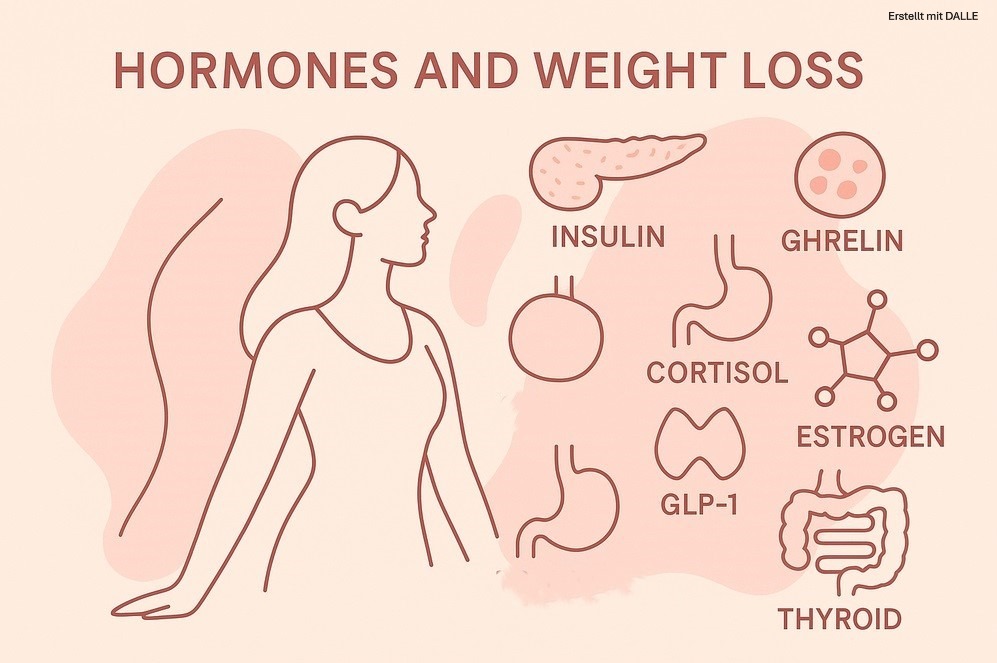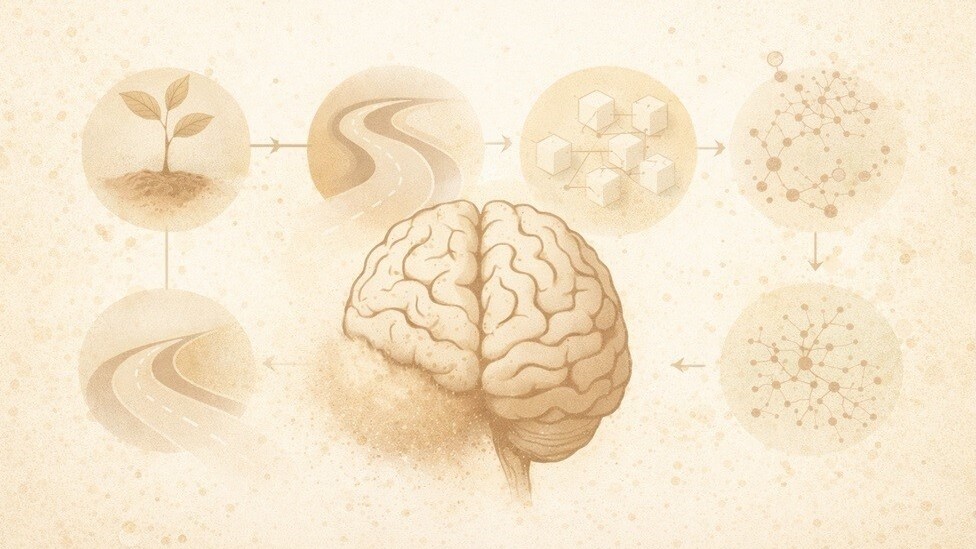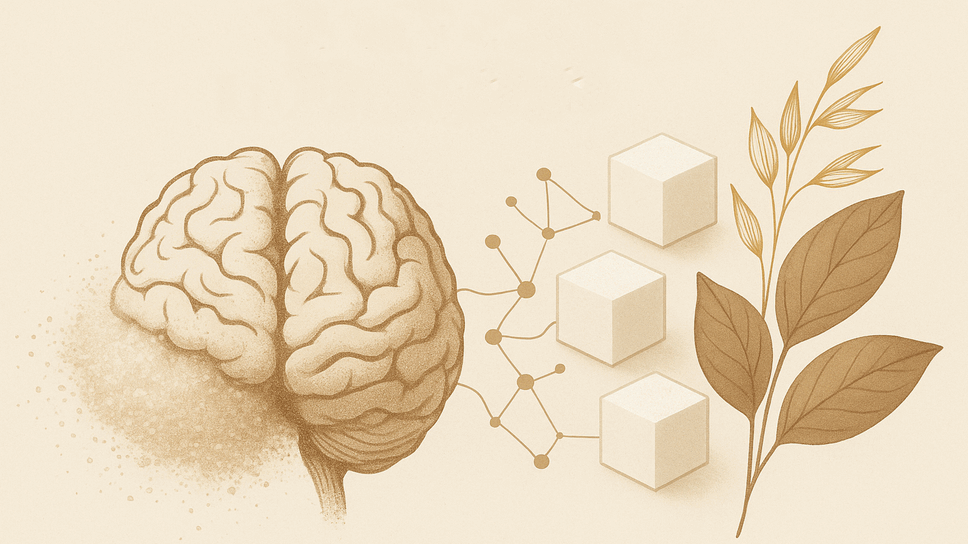
Weight Loss and Hormones: How Leptin, Insulin & Co. Influence Body Weight
“Why am I not losing weight – even though I eat healthily?”
Many people ask themselves this question. Sometimes it feels like the body is working against itself – despite a calorie deficit, exercise, and discipline. The answer often lies not in the food itself, but in the body’s hormones.
Hormones regulate not only hunger and satiety, but also metabolism, fat storage, sleep, stress, and even cravings. They function like invisible control centers, helping determine whether the body stores or releases fat.
This article focuses on the hormones that are particularly relevant to weight regulation – and how nutrition and lifestyle can positively influence them.
Hormones and Weight
1. Insulin – The Blood Sugar Regulator
Insulin is produced in the pancreas and is responsible for transporting sugar from the blood into the cells. If too much sugar is consumed regularly, insulin resistance can develop – which can block fat burning and lead to increased fat storage.
Minimally processed carbohydrates, a fiber-rich diet, and regular physical activity are considered key factors in maintaining stable insulin levels.
2. Leptin – The Satiety Hormone
Leptin is produced in fat cells and signals the brain when the body has enough energy. In cases of long-term excess weight, leptin resistance may develop – the feeling of fullness no longer functions properly, even when enough food has been consumed.
A healthy sleep-wake cycle, regular movement, and an anti-inflammatory diet can help restore leptin sensitivity.
3. Ghrelin – The Hunger Hormone
Ghrelin is primarily produced in the stomach and increases before meals. It stimulates appetite – especially for fast energy sources like sugar. Lack of sleep and chronic stress can increase ghrelin levels.
Balanced nutrition with quality protein and sufficient sleep are seen as helpful in regulating this hormone.
4. Cortisol – The Stress Hormone
Cortisol is produced in the adrenal glands and rises in response to stress. Chronically elevated cortisol levels can lead to increased belly fat storage and a slowed metabolism.
Rest periods, mindful movement, and breathing exercises can help bring cortisol back into balance.
5. Thyroid Hormones (T3, T4) – The Metabolic Engine
Thyroid hormones play a key role in determining the body’s energy expenditure. In the case of an underactive thyroid (hypothyroidism), the metabolism slows down – often accompanied by fatigue, weight gain, and lack of motivation.
Important micronutrients such as iodine, selenium, iron, and zinc support healthy thyroid function.
6. Estrogen – The Female Balance Hormone
Estrogen is often associated with the menstrual cycle – yet it also plays a role in fat metabolism. Especially during hormonal transitions – such as menopause – fluctuations in estrogen levels can have a noticeable impact on body weight.
Fiber plays a key role here by supporting estrogen metabolism through the gut.
7. GLP-1 – The Natural Satiety Signal
GLP-1 is released in the gut and promotes a feeling of fullness. It also slows down gastric emptying. While it has gained attention through modern weight loss medications, the body can produce GLP-1 naturally as well.
A diet rich in protein and fiber is considered a natural way to stimulate GLP-1 secretion.
Supporting Hormones – Without Pressure
Hormones cannot be controlled directly – but they can be influenced. Understanding how nutrition, sleep, stress, and movement affect hormonal processes can lead to a more balanced and sustainable metabolism.
It’s important to remember: not every body reacts the same. Many changes start with small adjustments – better sleep, less sugar, more movement, and a conscious slowdown of daily life. Also, don’t underestimate the impact of micronutrient intake, especially when it comes to thyroid function.
What May Help:
- More fiber: Supports digestion, estrogen elimination, and GLP-1 production
- Less sugar, more protein: Helps stabilize insulin and ghrelin levels
- Better sleep: 7–8 hours regulate leptin, cortisol, and hunger hormones
- Slowing down: Reduces cortisol through real pauses and relaxation
- Don’t forget micronutrients: Especially for thyroid health
Our Tip
For those looking to support their hormonal balance through nutrition, UNE Foods offers high-fiber, high-protein, and lower-carb baking mixes, as well as an innovative 3-in-1 collagen supplement:
- 🍞 Tomato-Cheddar Protein Bread Mix
- 🍕 Protein-Fiber Pizza Dough Mix
- ✨ 3-in-1 Collagen Supplement for Skin, Gut & Energy
More baking mixes are coming soon – stay tuned! 🤗
Disclaimer: This article is intended for informational purposes only and is not a substitute for medical advice. For health concerns, please consult a qualified healthcare provider or nutrition professional.
Das könnte dich auch interessieren
19. December 2025
The brain does not age linearly – and that is precisely its strength
Why does learning new languages often feel effortless at a young age, while later in life…
7. November 2025
As good as homemade bone broth – just more modern
The answer from UNE Foods Anyone who has ever made traditional bone broth knows how much…
24. October 2025
Sugar – The Silent Saboteur of Our Brain | UNE FOODS
Sugar affects far more than just blood glucose levels – it shapes how our brain thinks,…




